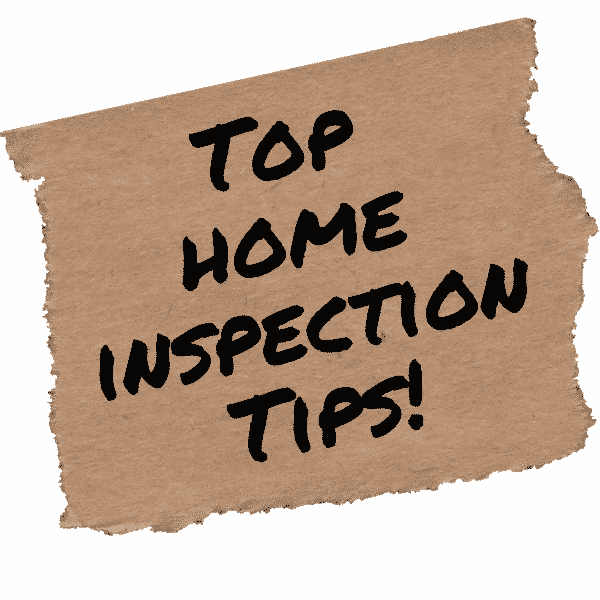By Keith Boggs
Posted September 16, 2019 at 10:00am CST.
Out of a sea of homes, you think you’ve found the one that is just right for you and your family. Congratulations! As a buyer, you still have a lot to figure out and many steps to take. One of the most important tasks? The home inspection.
Home Inspections Are Important
To help you navigate the process, here are our top five home inspection tips for buyers.
- Hire a qualified, experienced home inspector.
- Do your own pre-inspection.
- Be neighborly.
- Know what to expect and be there.
- Understand the report and use it to negotiate the best deal.
Learn more about each of these specific home inspection tips for buyers below.
1. Hire a qualified, experienced home inspector.
A home inspector’s sole responsibility is to provide you with the information you need to make a buying decision and negotiate a fair contract. It’s really the only way to get a thorough, unbiased, third-party opinion about the state of the house you’re considering. But not all home inspectors are created equal.
Before hiring, do your homework. Consider whether you want to go with a large, multi-inspector firm or a small, one- or two-person shop. Large firms may offer you discounts and extra warranties, but you may not know who will actually do the inspection or how much experience on the ground they really have. In smaller companies, like ours, owners are usually very experienced. They continue to inspect homes to stay up to date on changes in the building industry and home inspection best practices. We’ve written about the importance of this decision on our blog. Click here to learn more.
Additionally, know what to look for in a home inspection company. We’ve created a list of 13 questions buyers should ask and what you should look and listen for in response. But there’s one question that stands out as the single most important question to ask: “What will be inspected?” An inspector should demonstrate his understanding of your needs and be willing to go above and beyond the minimum requirements to give you the most comprehensive inspection report. He should show you specifically how he’ll go the extra mile. And he should explain not just the inspection itself, but also what is included in the inspection report in detail.
Hiring a top-notch, experienced home inspector is one of the best things you can do when buying a home. He or she will be your ally during this important process and can help you navigate the complexities of home defects and repairs.
2. Do your own “pre-inspection.”
You can learn a lot about a house just by looking at it in detail. Doing your own visual pre-inspection will give you a better understanding of the home’s condition and possibly identify issues you know you won’t want to live with or repair. It will help you identify areas you may want your inspector to pay extra attention to. And it provides an opportunity to assess in detail what you might want to repair, replace, or change in the home if you decide to buy. For example, do you hate the light fixtures? Will you want to update cabinets to better fit your style? Start making a list during your pre-inspection to begin planning for these remodeling projects.
Go through each room of the house and look at every element in detail — walls, ceilings, fixtures, molding, doors, windows, and cosmetic details. Look for signs of water damage, like discoloration or stains. Look for evidence of foundation movement — drywall cracks, nail pops, cracks along grout or caulk lines, or misaligned doors. Look at the electrical fixtures and test light switches. Open closets and cabinets to look at their general condition. Look at the condition of toilets, showers, and sinks, and test the faucets.
Walk around the outside of the house with your eagle eyes as well. Look for sagging, cracking, damaged gutters, and peeling paint. Look at the chimney and as much of the roof as you can. Pay attention to drainage and the foundation, looking for anything that just doesn’t look right to you. See how well the landscape, fence, and any outbuildings, pools, or spas have been maintained. And don’t forget the garage.
3. Be neighborly.
Neighbors are often an important factor when deciding whether or not to buy a home. They can also be a treasure trove of valuable information for a potential buyer. So, if it feels “right,” get out there and be friendly! What do they know about prior owners or tenants and any damage they might have done? Were there ever bats in the attic? Foundation issues? Flooding problems? What’s the neighborhood like? Don’t stalk them and don’t put yourself in danger! But don’t be afraid to get friendly if you run across them walking their dogs. This will also give you a feel for the neighborhood as a whole and could be the beginning of a beautiful friendship.
4. Know what to expect and be there.
If you’ve never experienced a home inspection or it has been a while since the last one, take some time to familiarize yourself with the process before it happens. We share some good information in our blog post about what to expect before, during, and after the inspection. The better you understand what’s next, the more value you will get from the inspection.
We also recommend that buyers be there during the home inspection, at least toward the end of the inspection, when the inspector can give you a preview of what he has found in person. While you’re all in the home together, he can point out certain defects and answer questions you may have. You don’t have to absorb all of the information at that point, because what he’ll discuss will (or at least should!) be in the inspection report, complete with pictures, loads of detail, and recommendations for repairs. Hearing your inspector’s first impression and being able to ask questions will help you better understand the inspection report when you receive it.
5. Understand the report and use it to negotiate the best deal.
With a thorough inspection report in your hands, you have the information you need to make a well-informed decision about what you will do next. There will always be defects. And you may choose not to worry about those that are relatively minor or inexpensive to fix. When it comes to larger, more costly defects, however — for example, roofing repairs, broken appliances, foundation issues, or extensive water damage — the inspection report will help you understand the problems and potential solutions.
So, make the best use of this collection of valuable information and insights. Talk to your inspector about anything you don’t understand. Ask questions and do your research to learn more about how larger defects can be addressed and how much repairs will cost. You can decide to request financial concessions, negotiate for a home warranty, or ask the owner to fix some or all of the issues. Or you may choose to walk away.
Most importantly, keep in mind that your inspector represents you, not the seller. With the right professional in your corner, you can be sure to get the most value out of the home inspection and the best deal on your new home.
About Keith Boggs
Keith Boggs is the owner of Stonebriar Property Inspections. He is your personal home inspector, and his investment in the company will be reflected in the quality of your inspection. Mr. Boggs’ inspection reports are professional, comprehensive, detailed, and clear. They average about 70 pages and include 80 to 100 color images and include detail findings and recommendations along with tips and best practices for maintaining your home. Stonebriar Property Inspection’s customer reviews speak to Keith’s reputation as an ethical, reliable, and courteous Dallas home inspector. Stonebriar Property Inspections is a proud member of the Better Business Bureau with an A+ rating. SPI is fully licensed by the Texas Real Estate Commission for home inspections and the Texas Department of Agriculture for termite/wood destroying insect inspections.





